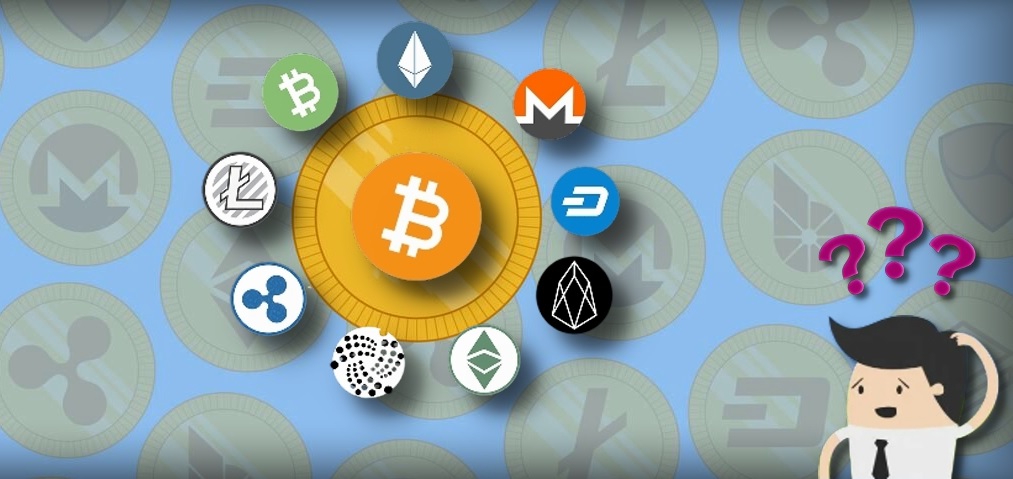Table of contents
- Why are cryptocurrencies a great choice for beginners?
- Interesting facts and statistics
- Top 10 cryptocurrencies for beginners
- Bitcoin (BTC)
- Ethereum (ETH)
- Binance Coin (BNB)
- Cardano (ADA)
- Dogecoin (DOGE)
- Ripple (XRP)
- Solana (SOL)
- Polygon (MATIC)
- Litecoin (LTC)
- Stellar (XLM)
- How do you choose your first cryptocurrency?
- Main selection criteria
- Importance of portfolio diversification
- Where to buy cryptocurrency: the best exchanges of 2025
- Safety tips for beginners
- Cryptocurrency Storage
- Precautions
- Conclusion: Cryptocurrencies are the future today

1. Why are cryptocurrencies a great choice for beginners?
Cryptocurrencies are becoming increasingly popular among a wide audience, especially among those who want to try their hand at investing. And guess what, it’s a really great opportunity to start your way in the world of finance!
Interesting Facts:
- According to research, more than 300 million people around the world own cryptocurrencies.
- The first purchase with bitcoins took place in 2010, when programmer Laszlo Hanec bought two pizzas for 10,000 BTC. Now those pizzas would be worth billions of dollars!
But why exactly should beginners look into cryptocurrencies? Because they offer a unique chance to invest in future technologies such as blockchain and decentralized finance (DeFi). However, it’s important to realize that the cryptocurrency market is quite volatile and you need to approach it wisely.
2. Top 10 cryptocurrencies for beginners
Let’s take a look at a few of the most promising and stable cryptocurrencies that are suitable for starting your journey into the world of digital assets.
1. Bitcoin (BTC)
Without a doubt, bitcoin remains the king of cryptocurrencies. It is the first and most famous digital currency created by Satoshi Nakamoto in 2009. Bitcoin is highly liquid and recognized by most financial institutions. It was thanks to bitcoin that other cryptocurrencies started to develop. Investing in bitcoin is a time-tested classic.
2. Ethereum (ETH)
It is the second most popular cryptocurrency after bitcoin. Ethereum is a platform for smart contracts that allows the creation of decentralized applications (dApps). Due to its flexibility and scalability, ethereum has become the basis for many DeFi and NFT projects. It is one of the most promising platforms for long-term investments.
3. Binance Coin (BNB)
This coin was created by Binance, one of the largest crypto exchanges in the world. BNB is used to pay commissions within the exchange, as well as to participate in IEO (Initial Exchange Offering). The popularity of the coin is growing along with the popularity of the exchange itself, which makes it attractive for short- and medium-term investments.
4. Cardano (ADA)
Cardano is a project that seeks to solve the problems of blockchain scalability and sustainability. Its developers are actively working on introducing scientific approaches and innovations. ADA is often referred to as “ether on steroids.” If you are looking for a technologically advanced asset, Cardano is a great option.
5. Dogecoin (DOGE)
Starting its existence as a joke, Dogecoin quickly gained popularity thanks to a community of enthusiasts and the support of famous personalities such as Ilon Musk. Despite its meme culture, DOGE has high growth potential, especially given its low cost and high transaction speed.
6. Ripple (XRP)
XRP is designed for fast international payments and is an alternative to traditional bank transfers. It is popular among large financial institutions and companies. Ripple is one of the most stable and reliable options for a long-term investment.
7. Solana (SOL)
Solana is a high-speed, low-cost smart contract platform that competes with Ethereum. It attracts developers with its scalability and low power consumption. SOL shows rapid growth and is considered one of the most promising projects in the industry.
8. Polygon (MATIC)
Polygon is a layer 2 solution for Ethereum that helps speed up transactions and reduce fees. MATIC is quickly gaining popularity among users and developers of dApps. It is a good choice for those who believe in the development of the Ethereum ecosystem.
9. Litecoin (LTC)
Litecoin is often referred to as the “digital silver” as opposed to the “digital gold” of bitcoin. LTC is characterized by faster transaction speeds and lower fees. It is a time-tested asset that is suitable for storage and everyday settlements.
10. Stellar (XLM)
Stellar is a cross-border transfer platform similar to Ripple. XLM provides fast and inexpensive international payments. Stellar is actively developing and attracting partners from the banking sector, which makes it attractive for investment.

3. How do you choose your first cryptocurrency?
Now that we’ve covered some popular options, let’s break down how to choose your first cryptocurrency. Here are a few criteria to help you make an informed choice:
- Investment objective: Decide whether you want to capitalize on short-term price increases or plan to hold assets for a long time
- Risks and volatility: Some cryptocurrencies, such as bitcoin and ether, are less susceptible to sudden price fluctuations, while newer projects may be more risky
- Diversification: Don’t invest all of your funds in one currency. Divide capital among several projects to minimize risk
- Technology basis: Research what technology underpins your chosen cryptocurrency. What makes it unique and in demand
- Community and support: An active community and interest from developers is an important factor in the success of the project.
Where to buy cryptocurrency: the best exchanges of 2025
Buying cryptocurrency has become easier than ever. We have compiled a list of reliable and trusted exchanges that will allow you to safely purchase your first bitcoins, etherium and other popular coins. Read our review on how to buy and exchange cryptocurrency and choose the crypto exchange that is right for you!
Safety tips for beginners
Investing in cryptocurrencies requires extra caution. Here are some tips to help protect your digital assets:
- Storage: Use hardware wallets (like Ledger or Trezor) to safely store your cryptocurrencies. They provide protection from hacks and hackers.
- Passwords and two-factor authentication: Always use complex passwords and enable two-factor authentication on all services associated with your cryptocurrencies.
- Training: Constantly study and follow the news in the field of cryptocurrencies. This will help you avoid fraud and react to market changes in time.
Conclusion: Cryptocurrencies are the future today
Cryptocurrencies open the door to a new financial world where everyone can become part of a global community. Whether you are a novice investor or an experienced trader, this market offers unique opportunities for earning and development. The main thing is to act wisely and with caution.






